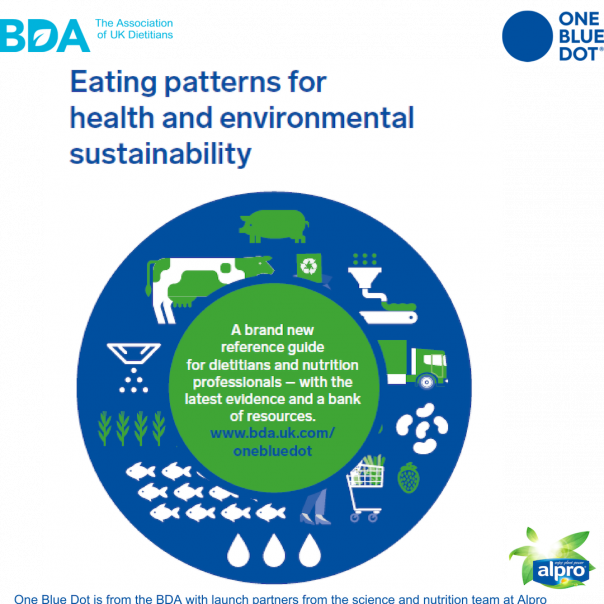
Clinicians will be able to use the BDA toolkit, named One Blue Dot, to include environmental considerations in healthy eating advice, and to inform conversations with patients who are keen to make the shift, taking into account any medical issues.
BDA honorary chairman, Caroline Bovey, said: “One Blue Dot helps BDA members and their clients to act now to make the essential dietary changes needed to ensure the future security of the planet. There is mounting pressure from leading environmental experts and organisations, as well as growing public interest and support, and the BDA is proud to add its voice to the raft of solutions which will be required.”
Recent reports have suggested that what is eaten also has an impact on the plant. The current food system contributes to up to 30% of total greenhouse gas emissions in the UK, adding to global warming.
The demand for food is also increasing with a growing population, which is expected to increase from 7 billion today to over 9 billion by 2050.
To produce more food using the current production methods to meet the demand is unsustainable. It would require more arable land, more fresh water, and more non-renewable energy, which are finite resources.
The One Blue Dot nine point plan includes:
- Reductions in red and processed meat to 70g per person per day, which has also been recommended by the World Cancer Research Fund.
- Prioritising plant proteins such as beans, nuts, soya, and tofu.
- Consuming fish from sustainable sources.
- Moderating dairy consumption and using fortified alternatives where needed.
- Focussing on wholegrain starchy foods.
- Opting for seasonal, locally sourced fruit and vegetables, and avoiding air freighted pre-packed and prepared fruit and vegetables.
- Reducing overconsumption of high fat, sugar and salted foods.
- Making tap water and unsweetened tea and coffee the choice for healthy hydration.
- Reducing food waste, especially of perishable fruit and vegetables by choosing tinned and frozen alongside seasonal fresh produce.
Full details can be found in the BDA’s ‘Eating patterns for health and environmental impact’ reference guide, which forms part of the One Blue Dot toolkit, supported by project partner Alpro.